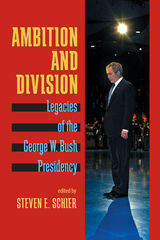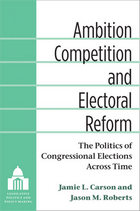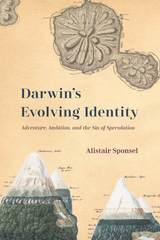
By juxtaposing the voices of women and men from all walks of life, Sigel finds that women's perceptions of gender relations are complex and often contradictory. Although most women see gender discrimination pervading nearly all social interactions—private as well as public—they do not invariably feel that they personally have been its victims. They want to see discrimination ended, but believe that men do not necessarily share this goal. Women are torn, according to Sigel, between the desire to improve their positions relative to men and the desire to avoid open conflict with them. Their desire not to jeopardize their relations with men, Sigel holds, helps explain women's willingness to accommodate a less-than-egalitarian situation by, for example, taking on the second shift at home or by working harder than men on the job. Sigel concludes that, although men and women agree on the principle of gender equality, definitions as well as practice differ by gender.
This complex picture of how women, while not always content with the status quo, have chosen to accommodate to the world they must face every day is certain to provoke considerable debate.

Politically, the Bush White House sought the entrenchment of consistent Republican electoral majorities. Institutionally, the Bush administration sought to preserve control of Congress by maintaining reliable partisan Republican majorities, and to influence the federal courts with a steady stream of conservative judicial appointees. The administration also sought increased autonomy over the executive branch by the aggressive use of executive orders and bureaucratic reorganizations in response to 9/11.
Many of these efforts were at least partially successful. But ultimately the fate of the Bush presidency was tied to its greatest single gamble, the Iraq War. The flawed prosecution of that conflict, combined with other White House management failures and finally a slumping economy, left Bush and the Republican Party deeply unpopular and the victim of strong electoral reversals in 2006 and the election victory of Barack Obama in 2008. The American public had turned against the Bush agenda in great part because of the negative outcomes resulting from the administration's pursuit of that agenda.
This book assembles prominent presidential scholars to measure the trajectory of Bush's aspirations, his accomplishments, and his failures. By examining presidential leadership, popular politics and policymaking in this context, the contributors begin the work of understanding the unique historical legacy of the Bush presidency.

In Ambition, Competition, and Electoral Reform, Jamie L. Carson and Jason M. Roberts present an original study of U.S. congressional elections and electoral institutions for 1872-1944 from a contemporary political science perspective. Using data on late nineteenth and early twentieth century congressional elections, the authors test the applicability in a historical context of modern political science theories, assess the effects of institutional reforms, and identify the factors that shape the competitiveness of elections. They present several key findings: the strategic politicians theory is applicable in an era without candidate-centered campaigns; there was an incumbency advantage prior to the full development of candidate-centered campaigns; institutional reforms have had a significant effect on elections; and the degree of electoral competition frequently correlates with elected officials' responsiveness to citizens.

In 1803 Beethoven acquired a French piano from the Erard Frères workshop in Paris. The composer was “so enchanted with it,” one visitor reported, “that he regards all the pianos made here as rubbish by comparison.” While Beethoven loved its sound, the touch of the French keyboard was much heavier than that of the Viennese pianos he had been used to. Hoping to overcome this drawback, he commissioned a local technician to undertake a series of revisions, with ultimately disappointing results. Beethoven set aside the Erard piano for good in 1810.
Beethoven’s French Piano returns the reader to this period of Beethoven’s enthusiasm for all things French. What traces of the Erard’s presence can be found in piano sonatas like his “Waldstein” and “Appassionata”? To answer this question, Tom Beghin worked with a team of historians and musicians to commission the making of an accurate replica of the Erard piano. As both a scholar and a recording artist, Beghin is uniquely positioned to guide us through this key period of Beethoven’s work. Whether buried in archives, investigating the output of the French pianists who so fascinated Beethoven, or seated at the keyboard of his Erard, Beghin thinks and feels his way into the mind of the composer, bringing startling new insights into some of the best-known piano compositions of all time.

Drawing on his own ambitious research in Darwin’s manuscripts and at the Beagle’s remotest ports of call, Sponsel takes us from the ocean to the Origin and beyond. He provides a vivid new picture of Darwin’s career as a voyaging naturalist and metropolitan author, and in doing so makes a bold argument about how we should understand the history of scientific theories.

In Hollywood Faith, Gerardo Marti shows how a multiracial evangelical congregation of 2,000 people accommodates itself to the entertainment industry and draws in many striving to succeed in this harsh and irreverent business. Oasis strategically sanctifies ambition and negotiates social change by promoting a new religious identity as "champion of life"-an identity that provides people who face difficult career choices and failed opportunities a sense of empowerment and endurance.
The first book to provide an in-depth look at religion among the "creative class," Hollywood Faith will fascinate those interested in the modern evangelical movement and anyone who wants to understand how religion adapts to social change.

A provocative history of the changing values that have given rise to our present discontents.
We pursue power, pleasure, and profit. We want as much as we can get, and we deploy instrumental reasoning—cost-benefit analysis—to get it. We judge ourselves and others by how well we succeed. It is a way of life and thought that seems natural, inevitable, and inescapable. As David Wootton shows, it is anything but. In Power, Pleasure, and Profit, he traces an intellectual and cultural revolution that replaced the older systems of Aristotelian ethics and Christian morality with the iron cage of instrumental reasoning that now gives shape and purpose to our lives.
Wootton guides us through four centuries of Western thought—from Machiavelli to Madison—to show how new ideas about politics, ethics, and economics stepped into a gap opened up by religious conflict and the Scientific Revolution. As ideas about godliness and Aristotelian virtue faded, theories about the rational pursuit of power, pleasure, and profit moved to the fore in the work of writers both obscure and as famous as Hobbes, Locke, and Adam Smith. The new instrumental reasoning cut through old codes of status and rank, enabling the emergence of movements for liberty and equality. But it also helped to create a world in which virtue, honor, shame, and guilt count for almost nothing, and what matters is success.
Is our world better for the rise of instrumental reasoning? To answer that question, Wootton writes, we must first recognize that we live in its grip.

What is ambition, and what are its consequences, in Shakespearean drama? This compelling interpretation of eight major plays reveals a Shakespeare who understands ambition as a doomed but necessary struggle against the limitations of the inherited self. Through vivid new readings of such crucial moments as Henry V's rejection of Falstaff, Macbeth's defeat by the advancing Birnam Wood, and Coriolanus' crisis at the gates of Rome, Robert Watson delineates a pattern of poetic justice whereby characters who disdain their places in nature's system forfeit the benefits that nature normally offers. Watson also amends the insights of psychoanalytic critics by demonstrating that Shakespeare uses Oedipal impulses and unnatural births as metaphors for the forbidden act of remaking the self: conceiving a new identity entails a symbolically incestuous defiance of the father's authority.
By tracing the evolution of this Shakespearean myth of ambition and exploring its analogues in many less familiar Renaissance texts, Watson illuminates the ethical perspective of the playwright and provides a bold new approach to the sexual symbolism of the plays. The persistence of the mythic pattern across different types of play (history, tragedy, and romance) and different modes of aspiration (political, martial, and spiritual) indicates that Shakespeare perceives ambition as a moral and dramatic problem in its own right, with its own special properties and its own weighty ambiguities.

A “second nuclear age” has begun in the post-Cold War world. Created by the expansion of nuclear arsenals and new proliferation in Asia, it has changed the familiar nuclear geometry of the Cold War. Increasing potency of nuclear arsenals in China, India, and Pakistan, the nuclear breakout in North Korea, and the potential for more states to cross the nuclear-weapons threshold from Iran to Japan suggest that the second nuclear age of many competing nuclear powers has the potential to be even less stable than the first.
Strategy in the Second Nuclear Age assembles a group of distinguished scholars to grapple with the matter of how the United States, its allies, and its friends must size up the strategies, doctrines, and force structures currently taking shape if they are to design responses that reinforce deterrence amid vastly more complex strategic circumstances. By focusing sharply on strategy—that is, on how states use doomsday weaponry for political gain—the book distinguishes itself from familiar net assessments emphasizing quantifiable factors like hardware, technical characteristics, and manpower. While the emphasis varies from chapter to chapter, contributors pay special heed to the logistical, technological, and social dimensions of strategy alongside the specifics of force structure and operations. They never lose sight of the human factor—the pivotal factor in diplomacy, strategy, and war.

READERS
Browse our collection.
PUBLISHERS
See BiblioVault's publisher services.
STUDENT SERVICES
Files for college accessibility offices.
UChicago Accessibility Resources
home | accessibility | search | about | contact us
BiblioVault ® 2001 - 2024
The University of Chicago Press









